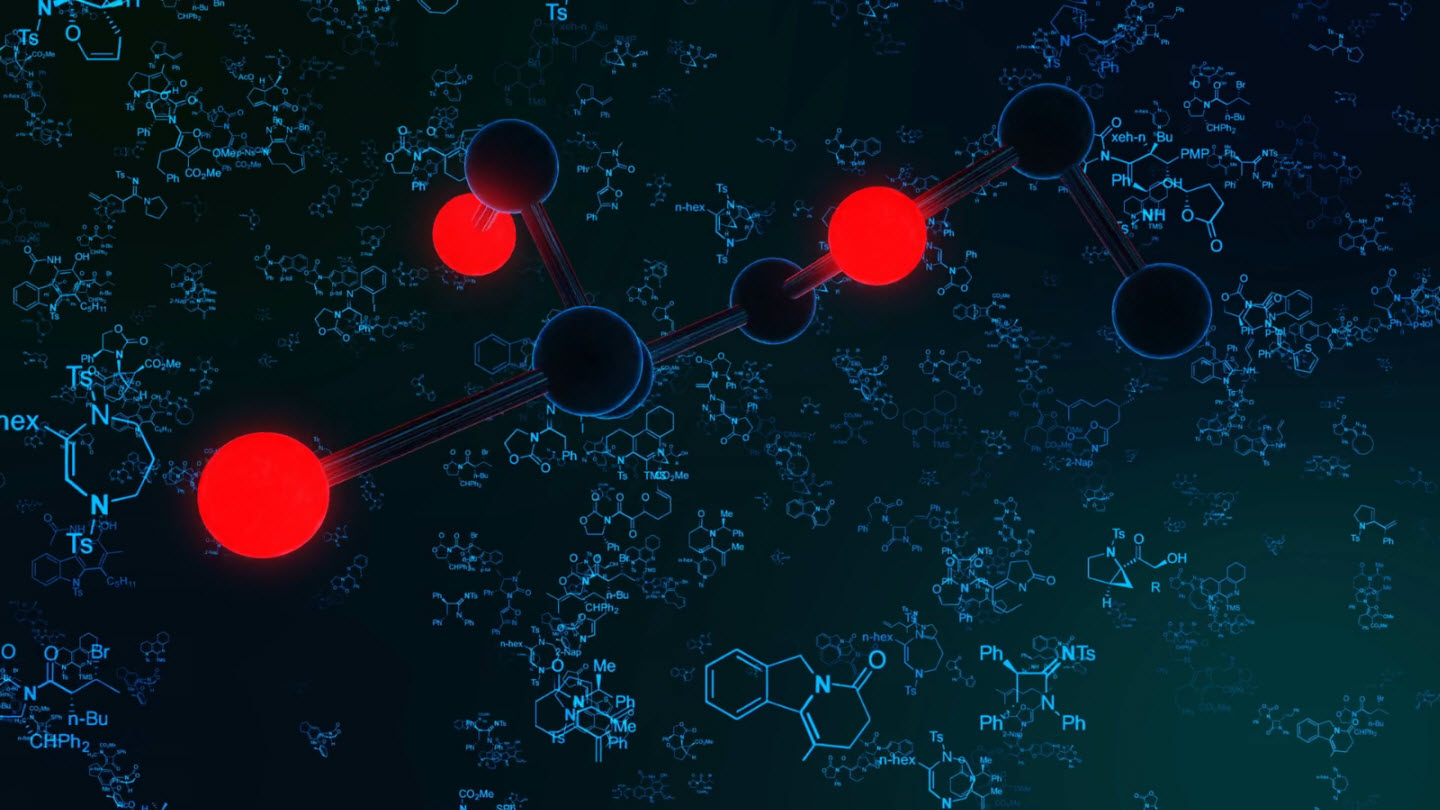Job for B.Pharm, M.Sc in Production at Kusum Healthcare Pvt. Ltd


There was a tragic event that shook the world in the 1960’s, when a large number of babies were born with severe deformities whose mothers had been prescribed a drug called ‘thalidomide’ for morning-sickness. “The problem was a result of the consumption of two enantiomers without separation. One of the isomer was toxic, while the other was the drug”, says Prof. A. S. Achalkumar, Department of Chemistry, IIT Guwahati. Prof Achalkumar and Prof. Yasuhiro Ishida from RIKEN, Wako-shi campus, Japan, have developed a simple and novel method to separate chiral enantiomers.
Chiral enantiomers are chemicals that have the same molecular formula but different three-dimensional arrangement of the constituent molecular segments. The separation of enantiomers is significant in bio-medical field because many biochemically active chemicals are found as mixtures of two enantiomers, one of which may be beneficial and the other, toxic.
The chemical properties of enantiomers are similar, which makes it very difficult to separate them, or to synthesize specifically one without being contaminated from the other enantiomer. “Nature is master in the exclusive production of enantiomerically pure amino acids and sugars, but man is still trying to master the art of enantioselective synthesis”, observes Prof Achalkumar. The current method to separate enantiomers is by chromatography, which is slow, energy intensive, and requires environmentally harmful solvents.
“Nature is master in the exclusive production of enantiomerically pure amino acids and sugars, but man is still trying to master the art of enantioselective synthesis”
The researchers have separated enantiomers with the use of helical supramolecular polymers. The helical polymers are formed by the salt formation of aromatic carboxylic acid and chiral amino alcohols. In this simple one-pot process they could resolve racemic mixtures into materials rich in one isomer. The interaction sites in supramolecular polymer not only help in the connection of the monomers but also in the recognition of chiral guests. When two salts with the same chirality are mixed, they undergo copolymerization and became soluble, while those with opposite chirality do not form copolymer and hence precipitate. The precipitated compound can be separated easily. The present system can be used for the enantioseparation of the abundant class of chiral amino alcohols, which has huge commercial potential.”
Prof. Ishida adds that although many supramolecular polymers are known, their enantio-separation ability has never been investigated so far. “Development of such process may help in reducing the price of chiral active pharmaceutical ingredients (APIs) and finally that of the medical treatment, itself. In addition, such process can be extended to other classes of chiral molecules”, he says.
The group of researchers is led by Prof. A. S. Achalkumar, and Prof. Yasuhiro Ishida from RIKEN, Wako-shi campus, Japan. Their path-breaking work has recently been published in the prestigious journal, Nature Communications. The paper has been co-authored by Prof. Achalkumar, Prof. Ishida, Dr. Vakayil Praveen, Senior Scientist, CSIR-National Institute for Interdisciplinary Science and Technology, and research scholars Dr. Krishnachary Salikolimi, Ms. Kuniyo Yamada, and Dr. Noriko Horimoto. The research findings have been published in the journal, Nature Communications.
Detailed results from the ground-breaking Phase III DAPA-CKD trial showed that AstraZeneca’s Farxiga (dapagliflozin) on top of standard of care reduced the composite measure of worsening of renal function or risk of cardiovascular (CV) or renal death by 39% compared to placebo (p<0.0001) in patients with chronic kidney disease (CKD) Stages 2-4 and elevated urinary albumin excretion. The results were consistent in patients both with and without type-2 diabetes (T2D). CKD is a serious, progressive condition defined by decreased kidney function affecting nearly 700 million people worldwide many of them still undiagnosed and the most common causes are diabetes, hypertension and glomerulonephritis.
The primary composite endpoint was ≥50% sustained decline in estimated glomerular filtration rate (eGFR), onset of end-stage kidney disease (ESKD) and CV or renal death. The absolute risk reduction (ARR) was 5.3% over the median time in study of 2.4 years. The trial also met all secondary endpoints, including significantly reducing death from any cause by 31% (ARR = 2.1%, p=0.0035) compared to placebo.
The co-chairs of the DAPA-CKD trial and its Executive Committee Prof. David Wheeler, University College London, UK and Prof. Hiddo L. Heerspink, University Medical Center Groningen, the Netherlands, said: “The impressive DAPA-CKD trial results are a remarkable development for patients with chronic kidney disease. These data have the potential to transform the standard of care for this patient population, which has a significant unmet need for new and improved treatment options.”
Mene Pangalos, Executive Vice President, BioPharmaceuticals R&D, said: “With today’s results, Farxiga becomes the first SGLT2 inhibitor proven to significantly prolong the survival of patients with chronic kidney disease with and without type-2 diabetes and we look forward to sharing these data with regulatory authorities around the world. Farxiga is also the first medicine in its class to demonstrate benefit in treating both heart failure and chronic kidney disease in patients with and without type-2 diabetes, and reduce the risk of hospitalisation for heart failure and nephropathy in type-2 diabetes.”
The safety and tolerability of Farxiga were consistent with the well-established safety profile of the medicine. In the trial, patients treated with Farxiga experienced fewer serious adverse events compared to placebo (29.5% versus 33.9%, respectively). Diabetic ketoacidosis was not reported in the Farxiga group versus in two patients in the placebo group.
Detailed results from the DAPA-CKD trial were presented on Sunday 30 August at the ESC Congress 2020 – The Digital Experience.
In May 2020, Farxiga was approved in the US to reduce the risk of CV death and hospitalisation for heart failure (hHF) in adults with heart failure (NYHA class II-IV) with reduced ejection fraction (HFrEF) with and without T2D. Farxiga is currently being assessed in patients with heart failure (HF) in the DELIVER (HF with preserved ejection fraction, HFpEF) and DETERMINE (HFrEF and HFpEF) trials, as well as in patients without T2D following an acute myocardial infarction (MI) or heart attack in the DAPA-MI trial – a first of its kind, indication-seeking registry-based randomised controlled trial.
Bristol Myers Squibb announced that the Phase 3 IDHENTIFY study evaluating IDHIFA® (enasidenib) plus best supportive care (BSC) versus conventional care regimens, which include best supportive care (BSC) only, azacitidine plus BSC, low-dose cytarabine plus BSC or intermediate-dose cytarabine plus BSC, did not meet the primary endpoint of overall survival (OS) in patients with relapsed or refractory acute myeloid leukemia (R/R AML) with an isocitrate dehydrogenase-2 (IDH2) mutation. The safety profile of IDHIFA was consistent with previously reported findings. The company will complete a full evaluation of the IDHENTIFY data and work with investigators to present detailed results at a future medical meeting.
“While we are disappointed by the outcome of the IDHENTIFY study, we remain confident in IDHIFA’s established role as a treatment option for patients with relapsed or refractory AML with an IDH2 mutation and are grateful to all those who participated in the study,” said Noah Berkowitz, M.D., Ph.D., senior vice president, Global Clinical Development, Hematology, Bristol Myers Squibb. “AML is one of the most difficult-to-treat blood cancers, and we’re committed to furthering our research and improving on the standards of care for patients living with this aggressive disease.”
In August 2017, Bristol Myers Squibb received full approval in the U.S. for IDHIFA for the treatment of adult patients with R/R AML with an IDH2 mutation as detected by a U.S. Food and Drug Administration (FDA)-approved test. IDHIFA is the first and only FDA-approved therapy for patients with R/R AML and positive for an IDH2 mutation, which represents up to 19 percent of AML patients. IDHIFA is also approved in Australia and Canada.